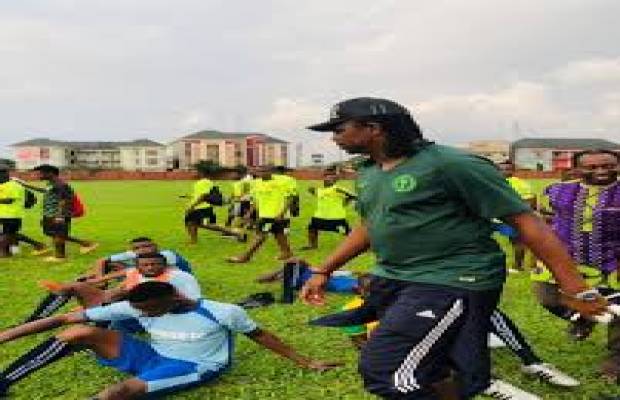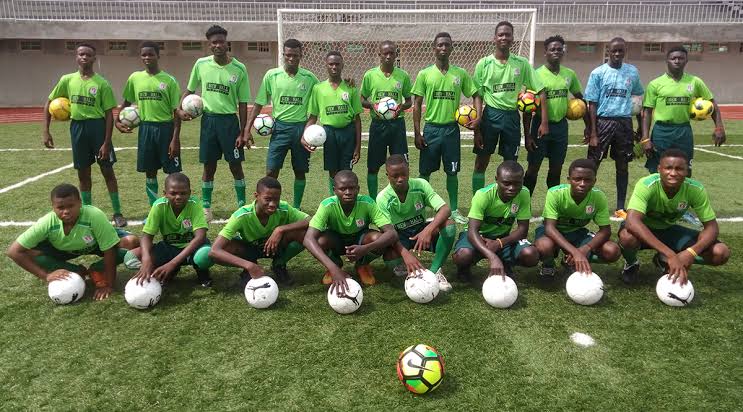“Best Football Academies in Nigeria
Related Articles Best Football Academies in Nigeria
Best Football Academies in Nigeria

Nigeria, a nation renowned for its fervent passion for football, boasts a rich history of producing exceptional talents who have graced both domestic and international stages. The bedrock of this footballing prowess lies in the numerous football academies scattered across the country, dedicated to nurturing young talents and shaping them into future stars. These academies provide a structured environment for aspiring footballers to hone their skills, develop tactical understanding, and cultivate the mental fortitude required to succeed in the demanding world of professional football.
The Significance of Football Academies in Nigeria
Football academies play a pivotal role in the development of Nigerian football for several compelling reasons:
- Talent Identification and Development: Academies serve as crucial talent identification centers, scouting young players with exceptional potential from various corners of the country. These players are then provided with specialized training and coaching, tailored to their individual needs and abilities, ensuring their holistic development.
- Structured Training and Coaching: Academies offer structured training programs led by qualified and experienced coaches. These programs focus on developing technical skills, tactical awareness, physical fitness, and mental resilience, all essential components of a well-rounded footballer.
- Educational Opportunities: Recognizing the importance of education, many academies integrate academic programs into their curriculum, ensuring that young players receive a quality education alongside their football training. This holistic approach prepares them for life beyond football, providing them with alternative career paths should they not make it as professional players.
- Exposure to Professional Football: Academies often have strong ties with professional football clubs, both domestic and international. This provides young players with opportunities to showcase their talent to scouts and potentially secure contracts with professional teams.
- Social and Economic Impact: Football academies contribute to the social and economic development of communities by providing employment opportunities for coaches, staff, and other personnel. They also serve as a source of inspiration for young people, encouraging them to pursue their dreams and stay away from negative influences.
Criteria for Evaluating Football Academies
When assessing the quality and effectiveness of football academies in Nigeria, several key criteria come into play:
- Coaching Staff: The quality and experience of the coaching staff are paramount. Academies with qualified and experienced coaches who possess a deep understanding of the game and a proven track record of developing young players are highly regarded.
- Training Facilities: Access to well-maintained training facilities, including pitches, gyms, and other equipment, is crucial for effective training and development.
- Curriculum and Training Programs: Academies with well-structured and comprehensive training programs that cover all aspects of the game, including technical skills, tactical awareness, physical fitness, and mental preparation, are considered superior.
- Player Development: The success of an academy is ultimately measured by its ability to produce players who go on to play at the highest levels of the game, whether in domestic or international leagues.
- Academic Programs: Academies that prioritize education and provide quality academic programs are highly valued.
- Partnerships and Affiliations: Strong partnerships with professional football clubs, both domestic and international, provide players with valuable exposure and opportunities.
- Discipline and Code of Conduct: Academies that instill discipline and promote a strong code of conduct are essential for developing well-rounded individuals.

Top Football Academies in Nigeria
Nigeria boasts a plethora of football academies, each with its unique strengths and approaches to player development. Here are some of the most reputable and successful academies in the country:
- Pepsi Football Academy: Established in 1992, Pepsi Football Academy is one of the oldest and most renowned football academies in Nigeria. It has produced numerous successful players who have gone on to play for top clubs in Nigeria and Europe, including Mikel John Obi, Osaze Odemwingie, and Echiabhi Okodugha. The academy has a strong emphasis on discipline, technical skills, and tactical awareness.
- Right to Dream Academy: Right to Dream Academy is a global network of residential academies that provides talented young Africans with the opportunity to pursue their academic and footballing dreams. The academy has a state-of-the-art facility in Ghana and has produced several players who have gone on to play for top European clubs, including Majeed Waris and David Accam.
- Kwara Football Academy: Kwara Football Academy, located in Ilorin, Kwara State, is a government-owned academy that aims to develop young football talents in the state. The academy has produced several players who have gone on to play for the Nigerian national team, including Ahmed Musa and Dele Adeleye.
- GBS Academy: GBS Academy, based in Jos, Plateau State, is a privately owned academy that has gained recognition for its focus on developing young players with exceptional technical skills. The academy has produced several players who have gone on to play for top clubs in Nigeria and Europe, including Moses Simon and Samuel Chukwueze.
- Midas Football Academy: Midas Football Academy is a Lagos-based academy that is known for its modern training facilities and its focus on developing players with a strong understanding of the game. The academy has produced several players who have gone on to play for top clubs in Nigeria and Europe, including Victor Osimhen.
- Remo Stars Academy: Remo Stars Academy is the youth academy of Remo Stars FC, a professional football club based in Ikenne, Ogun State. The academy has a strong focus on developing young players from the local community and has produced several players who have gone on to play for the first team.
- FC Hearts Academy: FC Hearts Academy is a Abuja-based academy that is known for its comprehensive training programs and its focus on developing players with a strong work ethic. The academy has produced several players who have gone on to play for top clubs in Nigeria and Europe.
- Papilo Football Academy: Founded by Nigerian football legend Nwankwo Kanu, Papilo Football Academy is a non-profit organization dedicated to providing opportunities for young Nigerian footballers. The academy focuses on developing players with strong character and leadership skills, in addition to their footballing abilities.
Challenges Facing Football Academies in Nigeria
Despite their crucial role in developing Nigerian football, academies face several challenges:
- Inadequate Funding: Many academies struggle with inadequate funding, which limits their ability to provide quality training facilities, coaching staff, and academic programs.
- Poor Infrastructure: The lack of well-maintained training facilities, including pitches, gyms, and other equipment, hinders the effectiveness of training programs.
- Corruption and Exploitation: Corruption and exploitation of young players by unscrupulous agents and individuals remain a significant problem.
- Lack of Regulation: The absence of a robust regulatory framework for football academies allows for the proliferation of substandard academies that exploit young players.
- Limited Access to Opportunities: Many talented players from disadvantaged backgrounds lack access to quality academies due to financial constraints or geographical limitations.
The Future of Football Academies in Nigeria
The future of football academies in Nigeria holds immense potential, provided that the challenges are addressed and the right steps are taken:
- Increased Investment: Increased investment from both the public and private sectors is crucial for improving the quality of training facilities, coaching staff, and academic programs.
- Strengthening Regulation: A robust regulatory framework is needed to ensure that academies adhere to minimum standards and protect the rights of young players.
- Promoting Transparency and Accountability: Transparency and accountability in the management of academies are essential for combating corruption and exploitation.
- Expanding Access to Opportunities: Initiatives should be implemented to expand access to quality academies for talented players from disadvantaged backgrounds.
- Fostering Partnerships: Stronger partnerships between academies, professional football clubs, and educational institutions are needed to provide players with holistic development opportunities.
Conclusion
Football academies are the lifeblood of Nigerian football, nurturing young talents and shaping them into future stars. Despite the challenges they face, these academies continue to play a vital role in the development of the game in Nigeria. By addressing the challenges and implementing the right strategies, Nigeria can unlock the full potential of its football academies and produce a new generation of world-class players.

